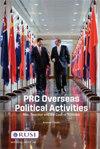IV. ICT for Community Security
Q4 Social Sciences
引用次数: 0
Abstract
Neighbourhood watch has yet to be implemented throughout Mogadishu’s districts, but Waberi’s experience shows how successful such schemes can be at mobilising communities and collecting the information and intelligence needed to make the district safer. Nevertheless, police– community relations remain marred by distrust, and the collecting of information, let alone of intelligence, remains a long-standing challenge in a clan-based culture in which family and clan come before crime reporting, and memories of Barre’s formidable policing system continue to influence attitudes. Waberi’s police station may be a place where residents can engage with officers, but most crime is not reported to the police, and even if it were, few expect the police to respond. Most victims turn first to elders or religious leaders. Little is known about the police force’s attempts to collect information and intelligence, although what exists is probably driven by the need for actionable intelligence on Al-Shabaab, rather than as an aspect of crime prevention or resource allocation. AMISOM and UNSOM provide relevant courses, while donors such as the UK and the US deliver training for criminal intelligence and forensic purposes, which officers say they value because it is proper policing in a way that community policing is not. But such training has limited application because Somali officers do not follow chains of evidence in the way that a European officer might. Indeed, anecdotal and circumstantial reports suggest that many have no understanding of why evidence should be collected. Also, the most valued forms of investigative training are reputedly aligned to the physical coercion style employed by NISA. And this has been true for some years. For example, 2012 saw the introduction of a cash-for-tips scheme that provided a reward of $500 dollars for information relating to the capture of Al-Shabaab leaders and $100 dollars for information on the四、信息通信技术促进社区安全
邻里监视尚未在摩加迪沙各区实施,但Waberi的经验表明,这些计划在动员社区和收集使该地区更安全所需的信息和情报方面是多么成功。然而,警察与社区的关系仍然受到不信任的影响,在以宗族为基础的文化中,家庭和宗族比犯罪报告更重要,更不用说情报的收集,仍然是一个长期存在的挑战,对巴雷强大的警察系统的记忆继续影响着人们的态度。瓦贝里的警察局可能是一个居民可以与警察接触的地方,但大多数犯罪都没有向警方报告,即使有,也很少有人指望警方会回应。大多数受害者首先求助于长老或宗教领袖。人们对警方收集信息和情报的努力所知甚少,尽管存在的可能是出于对青年党的可操作情报的需要,而不是作为预防犯罪或资源分配的一个方面。非索特派团和联索援助团提供相关课程,而英国和美国等捐助国提供刑事情报和法医方面的培训。警官们表示,他们重视这些培训,因为这是一种适当的警务,而社区警务则不是。但是这种训练的应用有限,因为索马里官员不像欧洲官员那样遵循证据链。事实上,轶事和间接报道表明,许多人不理解为什么要收集证据。此外,据说最有价值的调查训练形式与NISA采用的身体强制方式一致。这种情况已经存在好几年了。例如,2012年推出了一项现金换情报计划,提供抓获青年党领导人相关信息的奖励为500美元,提供抓获青年党领导人相关信息的奖励为100美元
本文章由计算机程序翻译,如有差异,请以英文原文为准。
求助全文
约1分钟内获得全文
求助全文
来源期刊

Whitehall Papers
Social Sciences-Archeology
自引率
0.00%
发文量
12
期刊介绍:
The Whitehall Paper series provides in-depth studies of specific developments, issues or themes in the field of national and international defence and security. Published three times a year, Whitehall Papers reflect the highest standards of original research and analysis, and are invaluable background material for policy-makers and specialists alike.
 求助内容:
求助内容: 应助结果提醒方式:
应助结果提醒方式:


